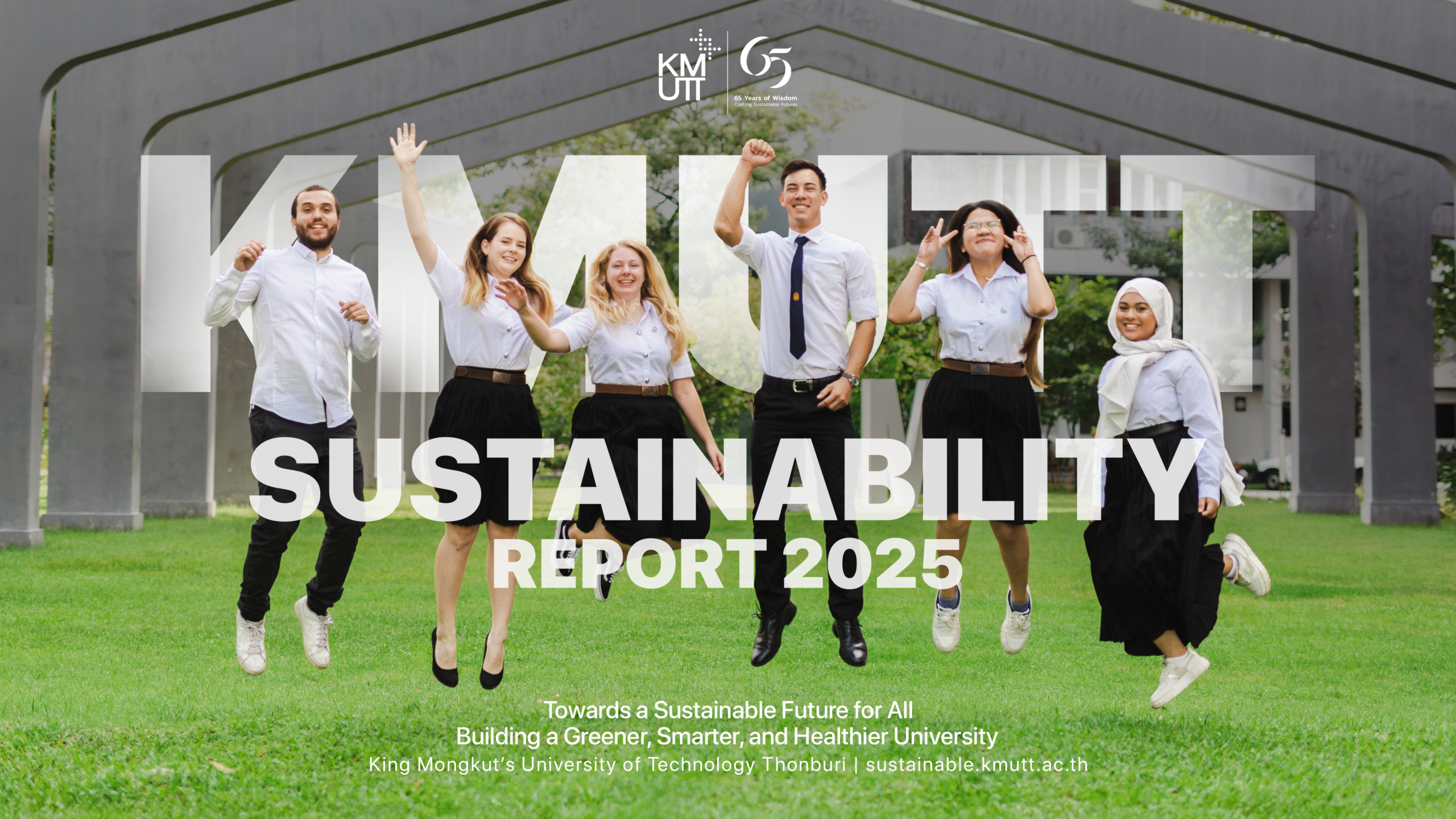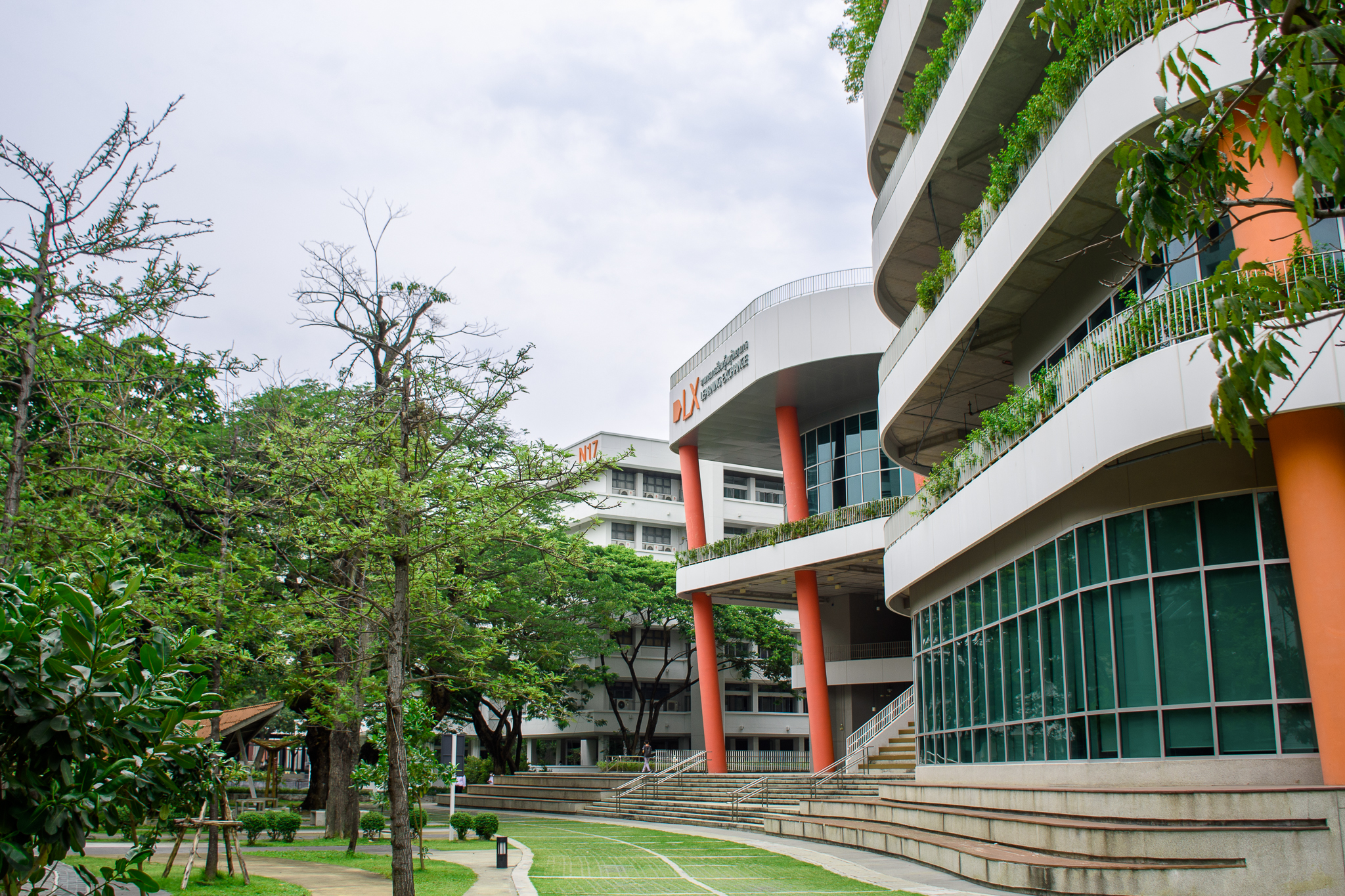
Sustainability Report
Building a sustainable future through innovation and action.
Read the 2025 Report
Building a sustainable future through innovation and action.
Read the 2025 ReportKing Mongkut’s University of Technology Thonburi (KMUTT) proudly launches its sustainability website under the vision “KMUTT: A Sustainable University for SDGs 2030.” The university is committed to embedding sustainability across governance, teaching, research, and campus operations, aligning with all 17 Sustainable Development Goals (SDGs). Through the “SEP for SDGs” philosophy, KMUTT empowers its community to become proactive change agents driving innovation, responsible resource use, and global collaboration. Despite the financial challenges of green initiatives, KMUTT believes in their long-term social, economic, and environmental benefits. Together, we strive to create a prosperous, inclusive, and sustainable future for all.
Assoc. Prof. Dr. Suvit SaeTia
President, King Mongkut’s University of Technology Thonburi
The arrows (↑ / ↓) represent the change in each indicator compared to the values recorded in 2024. Data points are continuously updated to reflect KMUTT's ongoing commitment to sustainability.
In the baseline year of 2019, KMUTT emitted 16,720 tons of carbon dioxide equivalent (CO2eq) from various direct and indirect activities across its four educational campuses: Pracha Uthit, Bang Khun Thian, Ratchaburi, and the KX Building. A significant 94% of these emissions originated from electricity use. To achieve our ambitious goal of carbon neutrality by 2040, KMUTT has implemented a comprehensive action plan focusing on several key pillars:
These initiatives are expected to reduce carbon emissions by 30% by 2040 from the baseline year, primarily through measures related to energy efficiency and renewable energy. Beyond these carbon reduction measures, KMUTT has also launched a conservation project in its Ratchaburi campus forest and planted over 130 acres of mangrove forests, significantly enhancing carbon sequestration to help achieve carbon neutrality by 2040.
| Scope | 2019 | 2020 | 2021 | 2022 | 2023 | 2024 | 2025 |
|---|---|---|---|---|---|---|---|
| Scope 1* | 286 | 322 | 186 | 193 | 309 | 1,949 | 1,090.15 |
| Scope 2 | 15,744 | 13,772 | 10,878 | 14,420 | 14,931 | 15,266 | 9,568.19 |
| Scope 3* | 690 | 428 | 827 | 431 | 751 | 628 | 323.98 |
| Total | 16,720 | 14,522 | 11,891 | 15,044 | 15,991 | 17,843 | 10,982.32 |
Emissions directly from the organization's activities, such as fuel combustion in machinery, company vehicles, or chemical usage.
Emissions from the generation of purchased electricity, heat, or cooling used by the organization.
Emissions from the organization's value chain, such as employee travel, waste disposal, or the use of external services.
Since 2015, King Mongkut’s University of Technology Thonburi (KMUTT) has actively driven the Plastic Reduction Program toward becoming a plastic-free campus. The initiative began with the “Bring Your Own Mug” campaign that encouraged students and staff to use reusable mugs, laying the foundation for long-term behavioral change. In 2018, the “KMUTT Says No to Single-Use Plastic” project led by the Green Heart Student Club expanded the effort by promoting the elimination of the “BIG 4” plastic bags, bottles, straws, and utensils. This was followed by the personal food container and mug campaigns, where users received a 5-baht discount at every campus food outlet and café, along with 20+ water refill corners offering safe, tested drinking water to reduce bottled water use. In 2019, KMUTT launched the Fabric and Reuse Bag Campaign, providing every freshman with a reusable bag and establishing “Please Reuse Me” corners across campus to encourage sharing. These initiatives were reinforced through online communications and strong participation from the Student Council and campus stores. As a result, KMUTT achieved a 61% reduction in single-use plastic usage by 2024 compared with the 2017 baseline, moving steadily toward its goal of 100% elimination by 2027 and creating a powerful model of university-wide environmental responsibility.
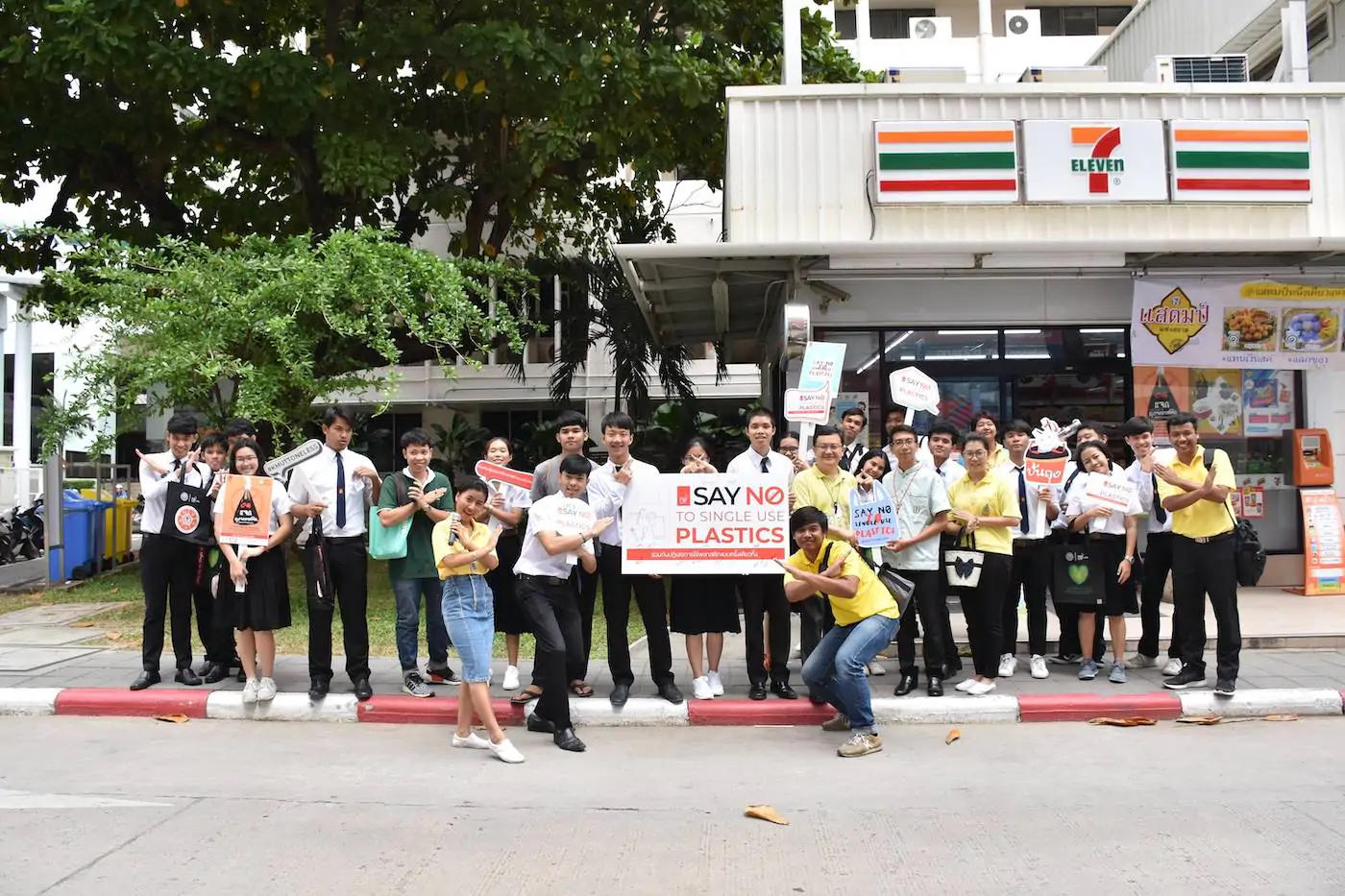
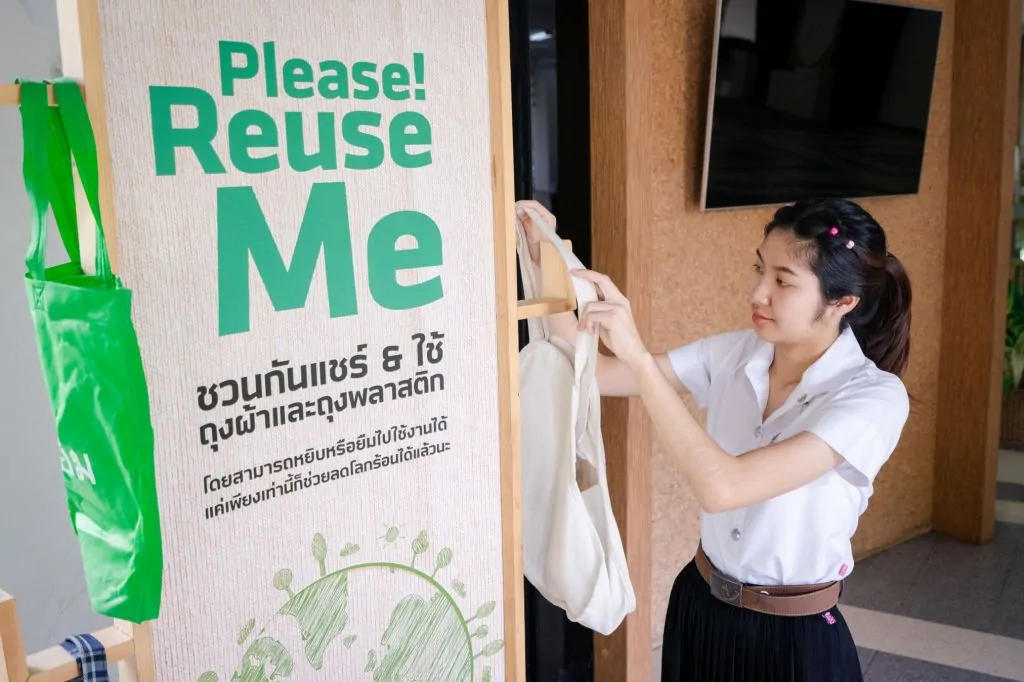

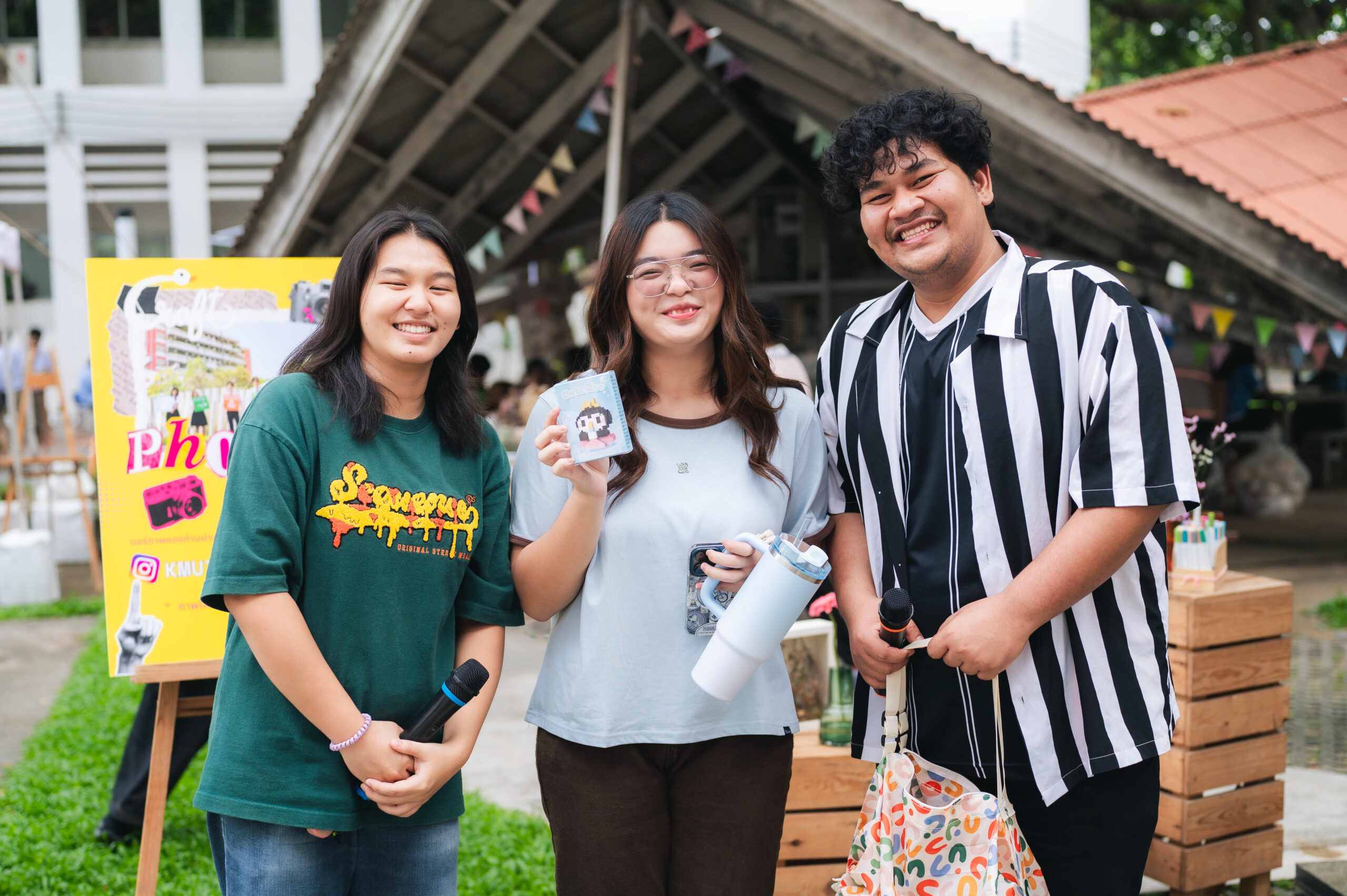
Initial survey of single-use plastic bags.
"KMUTT Says No to Single-Use Plastic" project launch. Encourage staff/students to use reusable bags/containers.
Promote reusable bags, personal containers, 5-baht discount, 20+ water refill corners.
COVID-19 skewed data. Focus on communication and new student orientation participation.
Consistent campaigns and strong participation from Student Council and stores.
Plastic bags, bottles, straws, and cups phased out from canteens/stores.
Promote reusable containers, strong participation, and university-wide policy.
Broader engagement from vendors and students.
KMUTT Waste Rally is a dynamic and environmentally conscious activity aimed at promoting recycling and sustainable living among students. This activity is structured to incentivize students by allowing them to exchange collected plastic bottles and electronic waste for activity hours, with an added component that rewards those who contribute more significantly.
IN 2024-2025
0 kg
Amount of Bottles Collected
IN 2024-2025
0.00 kg
Amount of Electronic Waste Collected
The primary goal of the KMUTT Waste Rally is to enhance environmental awareness and encourage recycling habits among students by linking the collection of recyclable materials to the reward of activity hours.
Beyond the practical act of recycling, this activity serves as an educational platform, teaching students about the importance of waste management and the environmental impact of materials like plastic and e-waste.
Successful execution of this activity would require organized collection points, a clear tracking system for materials collected and their activity hour value. Collaboration with environmental organizations and recycling centers could enhance the program's effectiveness.
Students who participate in the activity can exchange their collected recyclable materials for activity hours, which may be part of their academic or extracurricular requirements. This system provides a tangible benefit for engaging in environmental conservation.
An interesting aspect of the KMUTT Waste Rally is that students who contribute larger amounts of recyclable materials can achieve additional benefits. This might include more activity hours or other forms of recognition.
Explore our journey, progress, and detailed data in our official annual reports.
